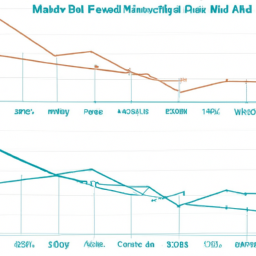Mutual funds and index funds are popular options for diversifying your portfolio without having to hand pick individual stocks. But what's the difference between the two? In this article, we'll explore the pros and cons of each and help you decide which one is right for you.
First, let's define what each type of fund is. An index fund is an investment fund – either a mutual fund or an exchange-traded fund (ETF) – that is based on a preset basket of stocks, bonds, or other assets. The goal of an index fund is to replicate the performance of a specific market index, such as the S&P 500.
On the other hand, a mutual fund is an investment vehicle that pools money from multiple investors to purchase a diversified portfolio of stocks, bonds, or other assets. The fund is managed by a professional fund manager, who makes investment decisions on behalf of the investors.
One of the biggest advantages of index funds is their low fees. Because they are designed to simply replicate the performance of an index, they require less management and research than actively managed mutual funds. This results in lower fees for investors, which can help to improve overall returns.
Another advantage of index funds is their simplicity. They are easy to understand and require little research or monitoring on the part of the investor. Simply choose an index fund that tracks the market or sector you're interested in, and let it do its thing.
Mutual funds, on the other hand, offer more guidance and customization. Because they are actively managed by a professional fund manager, they can adjust their investments to take advantage of market trends and opportunities. This can potentially result in higher returns than an index fund.
However, this customization comes at a cost. Mutual funds typically have higher fees than index funds, due to the costs of research and management. Additionally, because mutual funds are actively managed, there is a risk that the fund manager will make poor investment decisions, resulting in lower returns for investors.
When deciding between index funds and mutual funds, it's important to consider your investment goals and risk tolerance. If you're looking for an easy, low-fee way to invest in the stock market, an index fund might be the smartest and easiest investment you ever make. However, if you're willing to pay higher fees for the potential of higher returns, a mutual fund might be a better choice.
If you do decide to invest in an index fund, there are many options to choose from. Some of the best S&P 500 index funds of 2023 include the Fidelity 500 Index Fund (FXAIX), Vanguard 500 Index Fund Admiral Shares (VFIAX), and Schwab S&P 500 Index Fund (SWPPX).
If you're more interested in mutual funds, there are many reputable fund families to choose from, including Vanguard, Fidelity, and T. Rowe Price. Here are some of the top Vanguard funds to invest in for the long term:
- Vanguard Total Stock Market Index Fund (VTSAX)
- Vanguard Total Bond Market Index Fund (VBTLX)
- Vanguard Dividend Growth Fund (VDIGX)
- Vanguard Health Care Fund (VGHCX)
- Vanguard Real Estate Index Fund (VGSLX)
Ultimately, the decision between index funds and mutual funds comes down to your personal investment goals and preferences. Do you want a simple, low-fee investment that tracks the market? Or are you willing to pay higher fees for the potential of higher returns? By answering these questions, you can make an informed decision about which type of fund is right for you.
